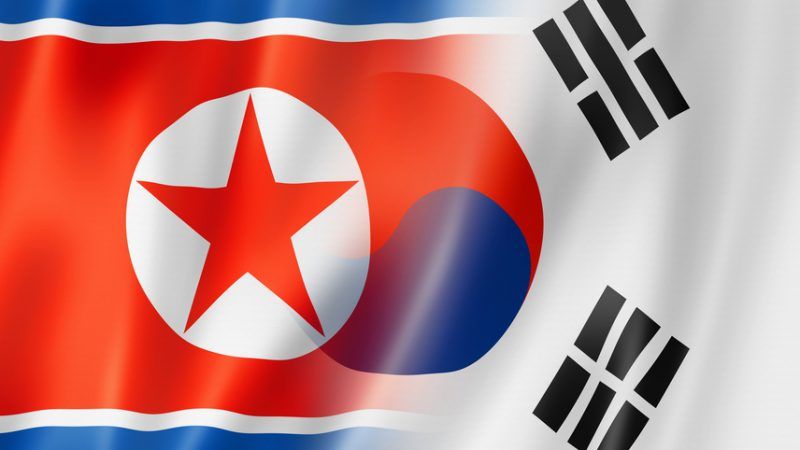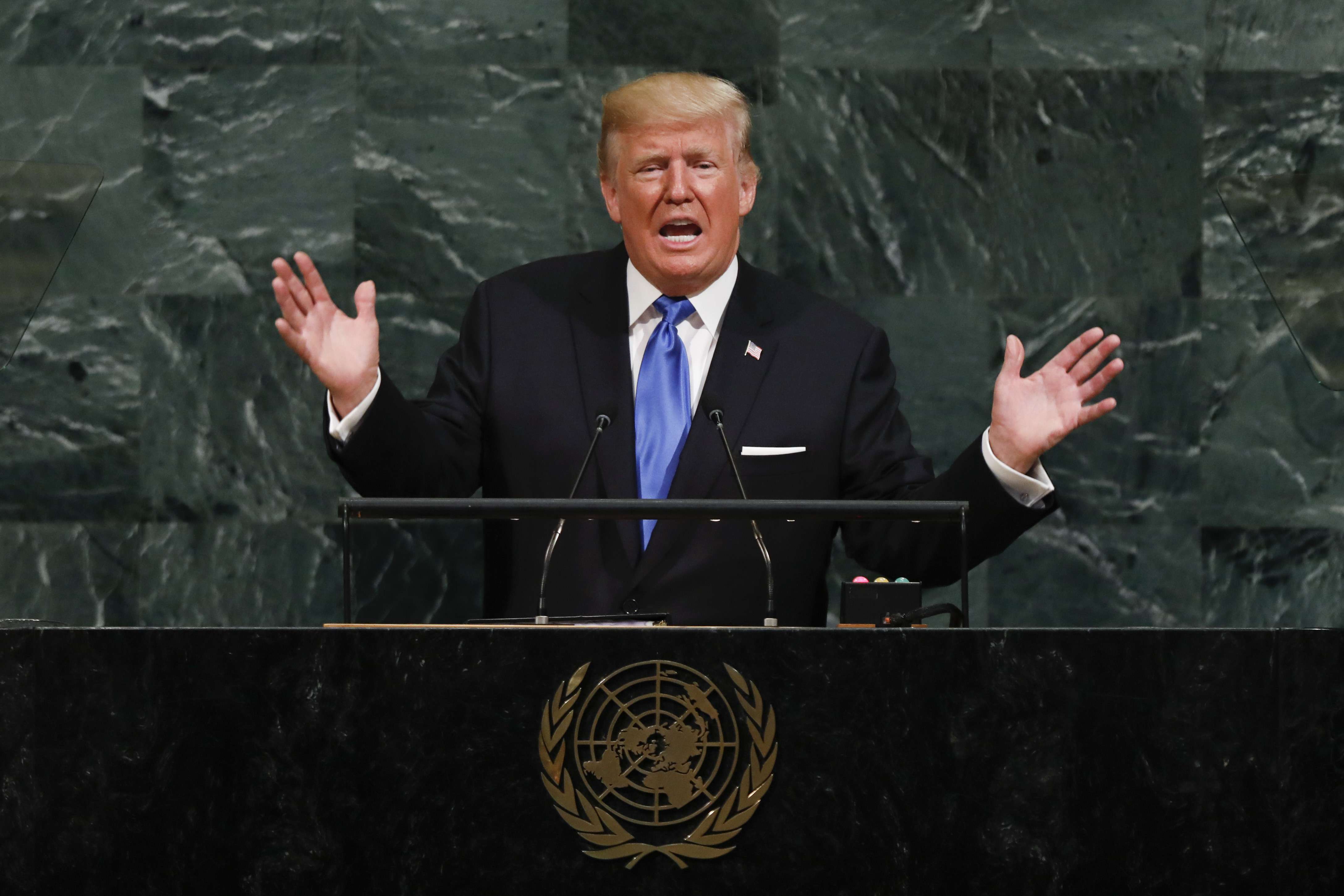No, Donald Trump, America's Trade Deal With South Korea Isn't Costing U.S. Jobs
Pulling out of the deal would hurt American workers in factories, farms, and tech centers. It would also drive up costs for consumers.


"Rocket man" isn't President Donald Trump's only concern on the Korean Peninsula.
The Korea-U.S. Trade agreement, or KORUS, is a target for the rank-and-file protectionists who occupy the White house. Trump himself threatened this past April to terminate the free trade deal if he couldn't renegotiate better terms, saying it has left America "destroyed." On the campaign trail, Trump was adamant that the deal cost over 100,000 jobs.
Peter Navarro, an economic advisor for the Trump administration, claimed in September of 2016 the deal contributed to the decline of the industrial Midwest. "Any deal that's going to be negotiated has to increase our growth, decrease our trade deficit, and strengthen our manufacturing base. The South Korea deal is a perfect example of violating every single one of those rules."
Try as Trump might, blaming job losses in the industrial Midwest on trade with South Korea is nonsensical, says Alan Reynolds, a senior fellow at the Cato Institute, a libertarian think tank.
The bulk of Korean car imports to the United States occurred between 2010-2015, Reynolds points out, while the bilateral reduction in tariffs on Korean automobiles was scheduled to occur in 2016-2021.
If anything, withdrawing from the deal would considerably hurt the American automobile industry. What KORUS really did was lower Korean tariffs on U.S cars from 8 percent in 2012 to zero in 2016. During that period, American automobiles exports tripled in South Korea, according to the office of the U.S. Trade Representative.
Trade isn't a competition that one side or the other wins. Both countries benefited when, for example, Korean car companies Kia and Hyundai recently built assembly plants in Georgia and Alabama, respectively.
In a 21st Century economy, companies might be located in a certain country but they still rely on global supply chains. Almost half of America's imports from abroad are used as inputs to create other things. Meanwhile, South Korea is America's seventh-largest export market for goods. Pulling out of trade agreements will add cost to those supply chains that hurt businesses and consumers in both countries.
"Withdrawing from KORUS, for instance, would likely mean our products would face, on average, a 13/14 percent tariff to enter South Korea (up from zero), Clark Packard, a policy analyst for the R Street Institute, a free market think tank, says. "Products entering the United States would face a tariff of 3.5 percent on average – up from zero."
The consequences could be felt well beyond the markets for tech and automobiles. The U.S-Korean trade deal, which was negotiated initially by President George W. Bush and ratified under President Barack Obama, has been a particular boon for American agriculture.
South Korea is the fifth-largest importer of American farm products. If the United States were to pull out of the agreement, countries like Canada or Australia would likely move in on the market.
Members of Congress from Midwestern states are pushing back on the Trump administration's anti-KORUS rhetoric. Sen. Joni Ernst, R-Iowa, wrote a letter urging Trump not to break the deal. Sen. Ben Sasse, R-Nebraska, no stranger to criticizing Donald Trump, was loud in his defense of the deal. "His administration holds 18th-century views of trade as a zero-sum game," Sasse recently tweeted. "I side with our farmers and ranchers who are feeding the world now." Agricultural advocacy groups from states such as Iowa and Illinois have been vocal about the importance of keeping South Korean markets open to farmers.
For now, at the behest of some of the more establishment members of the cabinet, it seems the White House has decided to leave KORUS as is. But as long as Trump sits behind the Resolute desk and his reputation as a deal-maker is at stake, it's hard to believe this particular trade fight is over.
"I know there are some globalists in the room right now. And they don't want them, John, they don't want the tariffs," Trump told John Kelly, the White House chief of staff, Axios reported. "But I'm telling you, I want tariffs."


Show Comments (15)